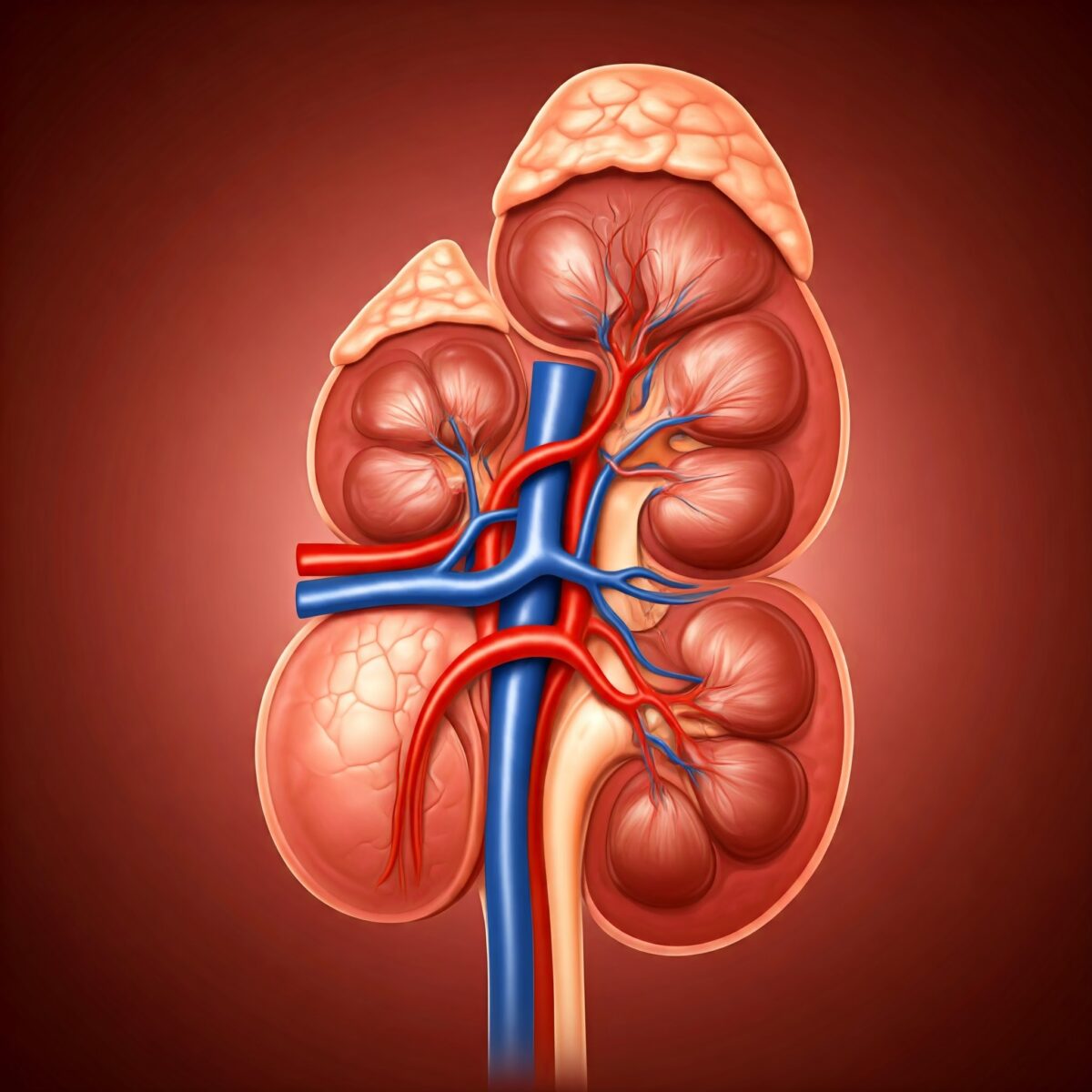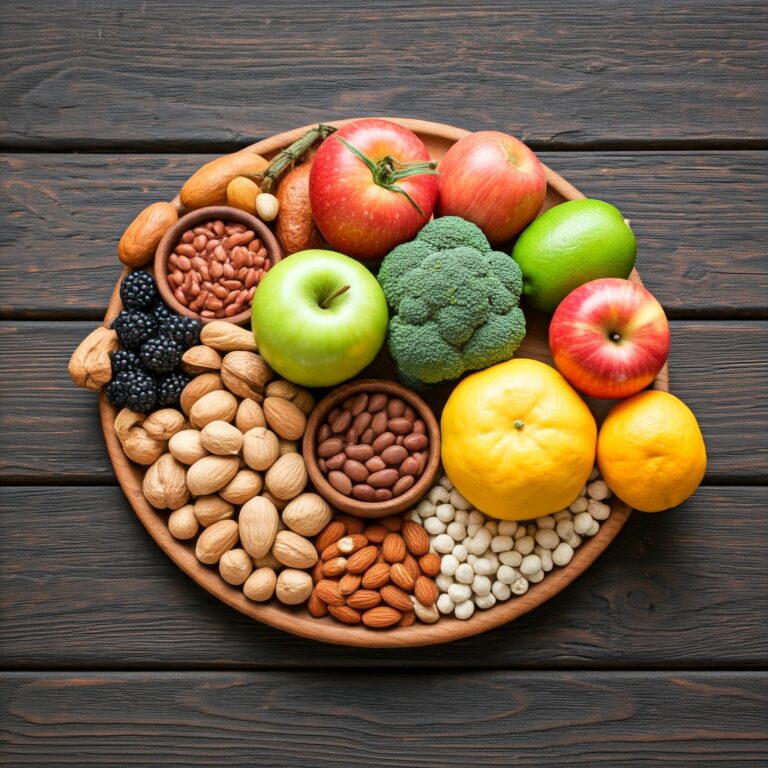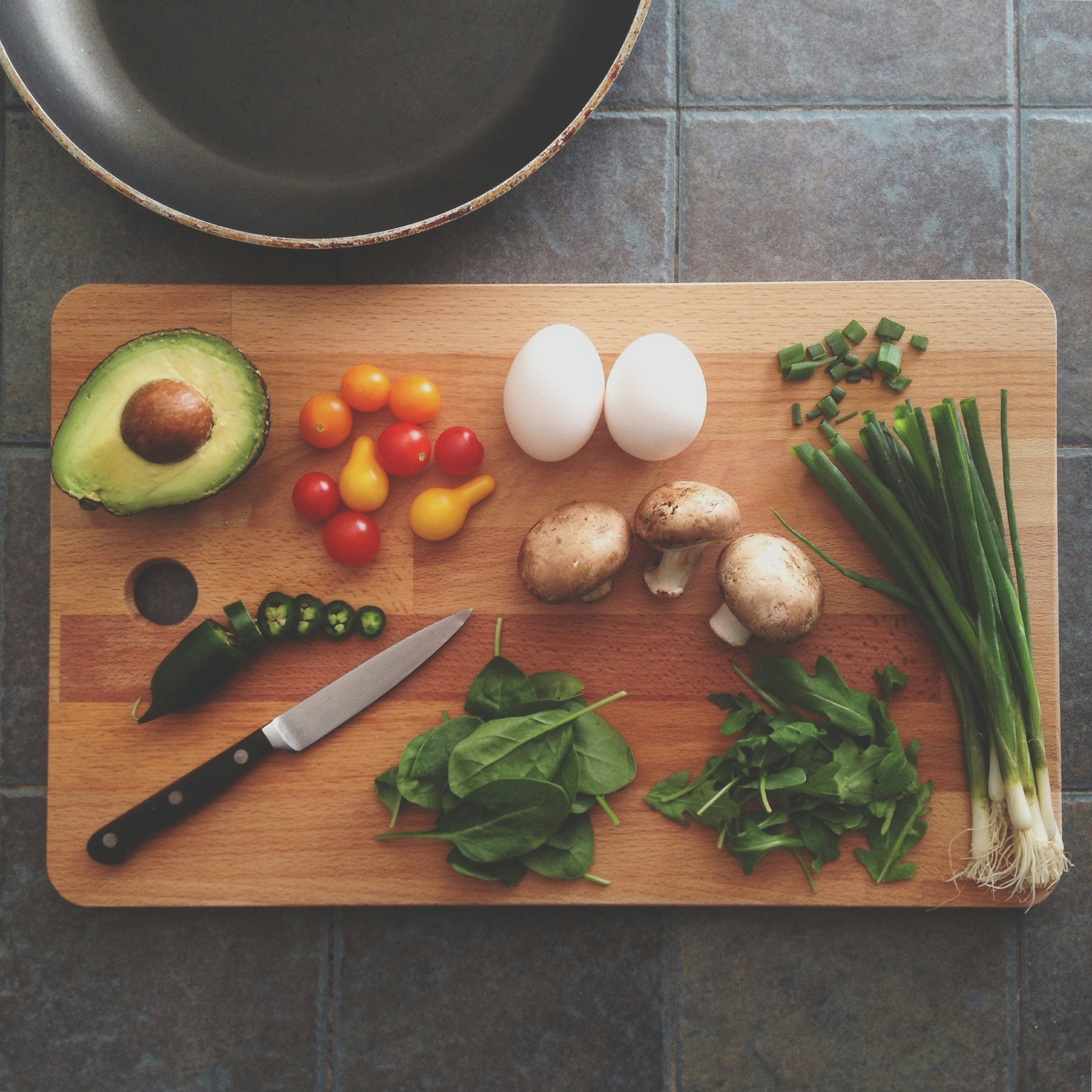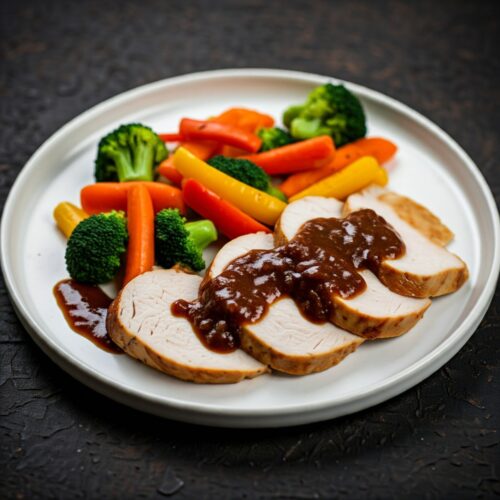Introduction to Kidney Disease and Nutrition
Kidney disease is a significant health concern affecting millions globally, with varying degrees of severity. It involves the gradual loss of kidney function over time, impacting the body’s ability to filter waste and maintain essential fluid balance. Conditions such as diabetes and high blood pressure are common culprits contributing to kidney dysfunction. Given the critical role kidneys play in overall health, it becomes imperative to understand how nutrition influences kidney health and wellbeing.
Proper nutrition is a key factor in managing kidney disease and can substantially enhance one’s quality of life. A renal diet, tailored to the individual’s specific needs, can help minimize the accumulation of waste products in the blood and reduce the risk of complications. This approach often includes limiting certain nutrients, such as sodium, potassium, and phosphorus, while ensuring adequate intake of essential vitamins and minerals. When thoughtfully crafted, an easy 7-day meal plan for kidney disease can make a significant difference in one’s daily experience, helping individuals feel better daily.
Adopting a kidney-friendly diet does not equate to deprivation; rather, it is an opportunity to explore a variety of delicious and nutrient-rich foods. Patients diagnosed with kidney disease may feel overwhelmed by the dietary restrictions often associated with their condition. However, understanding the purpose behind these guidelines helps in establishing a positive relationship with food. By focusing on wholesome, natural ingredients, individuals can create satisfying meals that support renal function without sacrificing flavor or enjoyment.
Through dietary adjustments, patients can manage their symptoms effectively, slow the progression of kidney disease, and improve their overall health. This blog post aims to provide an easy 7-day meal plan that emphasizes nutritious options while highlighting the importance of mindful eating for those living with kidney disease. The following sections will delineate specific foods to include and avoid, catering to the unique dietary needs of this population.

Understanding Kidney Disease
Kidney disease refers to a range of medical conditions that affect the kidneys’ ability to filter waste and excess fluid from the blood effectively. The kidneys, which are essential organs in the human body, perform several critical functions including the regulation of blood pressure, electrolyte balance, and red blood cell production. When the kidneys become damaged, waste products and fluid can accumulate in the body, leading to serious health complications.
There are two primary types of kidney disease: acute and chronic. Acute kidney disease occurs suddenly due to various factors such as dehydration, infections, or exposure to certain medications. This form can often be reversible with prompt treatment. Chronic kidney disease (CKD), on the other hand, develops gradually over time and is usually a result of underlying conditions such as diabetes or hypertension. CKD is classified into five stages, with each stage indicating a progressively decreasing level of kidney function. As the disease advances, patients may require a more restrictive renal diet to manage their health effectively.
The common causes of kidney disease also extend to genetic factors and lifestyle choices. Conditions such as obesity, smoking, and a diet high in sodium and processed foods can lead to kidney damage over time. The link between kidney health and diet underscores the importance of an ‘easy 7-day meal plan for kidney disease’ that encourages better eating habits, ultimately helping individuals feel better daily. Following a renal diet can help in managing symptoms, slowing disease progression, and maintaining overall wellbeing.
Therefore, understanding kidney disease, its types, stages, and causes is crucial for effective management. Proactive lifestyle changes, including dietary modifications, can contribute significantly to improving one’s quality of life, making it essential for individuals at risk to be informed and engaged in their health decisions.
The Role of Nutrition in Managing Kidney Disease
Nutrition plays a vital role in managing kidney disease, as it can significantly influence the progression of the condition and improve the overall quality of life for those affected. The kidneys are essential organs responsible for filtering waste and excess substances from the blood, and when they are compromised, the right dietary choices can help to control symptoms and minimize further damage. A well-structured renal diet, such as an easy 7-day meal plan for kidney disease, can provide the necessary nutrients while reducing the intake of harmful components.
One of the primary focuses of a renal diet is to limit the intake of certain nutrients that can strain the kidneys. For example, reducing sodium, potassium, and phosphorus levels in food can help alleviate the workload on the kidneys. By incorporating foods that are low in these elements, patients can enhance their well-being and feel better daily. Additionally, a proper balance of protein is essential. While protein is important for overall health, excessive protein intake can be detrimental to kidney function. Therefore, selecting high-quality, low-protein foods on a weekly meal plan becomes crucial.
Moreover, hydration is another key aspect of kidney health management. Adequate fluid intake helps the kidneys flush out toxins and waste products. It is essential to tailor fluid intake according to individual health needs, as some individuals may require limitations based on their specific conditions.
To summarize, adhering to a nutrient-rich diet designed for kidney disease can have profound effects on health outcomes. By carefully planning meals and focusing on renal-friendly foods, individuals can control symptoms effectively and prevent further complications. An easy 7-day meal plan for kidney disease serves as a practical tool for establishing a sustainable and health-promoting dietary routine.
Understanding the Importance of Meal Planning for Kidney Health
Meal planning plays an essential role in managing kidney health, particularly for individuals diagnosed with kidney disease. A well-structured meal plan not only assists patients in meeting their dietary requirements but also simplifies the complexities associated with a renal diet. By thoughtfully preparing meals in advance, patients can make informed choices that align with their nutritional needs while also considering their medical conditions.
One of the primary benefits of an easy 7-day meal plan for kidney disease is that it helps individuals maintain a balanced intake of essential nutrients while minimizing harmful substances. A renal diet typically requires careful monitoring of potassium, phosphorus, sodium, and protein intake. By planning meals ahead of time, patients can avoid impulsive food choices that may compromise their health and well-being.
Additionally, meal planning streamlines grocery shopping and food preparation, thus reducing daily stress and uncertainty about what to eat. Organizing meals promotes consistency, which is vital for anyone wanting to feel better daily. This proactive approach allows those with kidney issues to experiment with recipes that are not only delicious but also compliant with their dietary restrictions, making it easier to enjoy healthy food without feeling deprived.
Moreover, effective meal planning facilitates communication with healthcare providers. By keeping track of meals and ingredients, patients can share this data with dietitians or doctors, who can provide tailored guidance. This collaborative approach enhances one’s ability to adhere to dietary recommendations specific to kidney health.
By prioritizing meal planning, individuals can manage their kidneys more effectively. Embracing an easy 7-day meal plan for kidney disease empowers patients, enabling them to take charge of their health journey while simplifying complex dietary needs. Ultimately, a structured meal plan enriches day-to-day living, contributing to an improved quality of life.
Benefits of a Kidney-Friendly Meal Plan
Adopting a kidney-friendly meal plan offers numerous advantages that can significantly enhance one’s health and well-being. Primarily, individuals with kidney disease can see improvements in their overall kidney function. By following an easy 7-day meal plan for kidney disease, patients can ingest nutrients that support renal health, thereby potentially slowing the progression of kidney decline. A well-structured renal diet can also be pivotal in maintaining adequate kidney function, allowing individuals to feel better daily.
Another notable benefit of a kidney-friendly meal plan is its role in blood pressure management. A diet low in sodium is crucial for regulating blood pressure, which is especially essential for those suffering from kidney disease. High blood pressure can exacerbate kidney problems, making it important to choose foods that contribute to cardiovascular health. The incorporation of potassium-rich fruits and vegetables can further aid in blood pressure reduction, aligning with the dietary requirements for renal health.
Additionally, these meal plans assist in stabilizing blood sugar levels. For those with diabetes or insulin resistance, managing carbohydrate intake is vital. A renal diet can focus on low-glycemic index foods, helping to prevent spikes in blood sugar. This is particularly crucial since poor blood sugar control can lead to additional strain on the kidneys. By integrating balanced meals that include appropriate portions of carbohydrates, proteins, and fats, individuals may experience more consistent energy levels and overall health improvements.
Incorporating a kidney-friendly meal plan not only promotes better kidney health but also enhances one’s quality of life. By emphasizing the importance of mindful eating habits and nutrient-dense foods, patients can effectively manage their health conditions while enjoying a diverse and satisfying diet.
Key Nutrients to Focus on for Kidney Health
Maintaining optimal kidney health requires careful consideration of the nutrients included in your diet. This is particularly important when following an easy 7-day meal plan for kidney disease. A renal diet emphasizes specific nutrients that can greatly affect kidney function and overall health. The primary macronutrients—proteins, carbohydrates, and fats—must be balanced appropriately to support kidney function while still providing essential energy.
Proteins are necessary for repairing body tissues and maintaining muscle mass; however, in a kidney-friendly diet, it is imperative to consider the sources and amounts. Opting for high-quality proteins, such as lean meats, fish, and plant-based options like beans, can help you feel better daily while minimizing stress on the kidneys. It is crucial to monitor protein intake closely, especially since excessive protein can exacerbate kidney issues.
Next, focus on the importance of potassium and phosphorus. Both minerals can build up in the blood when kidney function decreases. While potassium is pivotal for heart health and regulating fluid balance in the body, it is essential to limit high-potassium foods such as bananas, oranges, and potatoes. Similarly, phosphorus should be monitored by reducing dairy products and processed foods, which can contain high phosphate levels. Incorporating low-potassium and phosphorus-rich foods such as cauliflower and zucchini can help create a balanced meal plan.
Vitamins, particularly the B vitamins and vitamin D, also play a significant role in kidney health. These vitamins support energy metabolism and assist in the maintenance of bone health and immune system function. Foods rich in these vitamins, such as fortified cereals and leafy greens, are recommended in a renal diet. By incorporating these key nutrients and focusing on a balanced, renal-friendly diet, individuals can maintain better kidney health and feel better daily.
Day-by-Day Meal Plan for a Week
Following a renal diet can significantly impact your well-being, allowing you to feel better daily. A well-structured meal plan not only introduces variety but also ensures essential nutrients are consumed within the limitations of kidney disease. Below is an easy 7-day meal plan that accommodates the dietary restrictions commonly associated with this condition.
Day 1: For breakfast, enjoy a bowl of oatmeal topped with fresh berries. Lunch can be a quinoa salad with cucumber, bell peppers, and lemon dressing. As for dinner, grilled chicken breast with steamed broccoli offers a balanced meal. Snack on apple slices with almond butter throughout the day.
Day 2: Start with scrambled eggs and spinach for breakfast. A turkey sandwich on whole grain bread, complemented by carrot sticks, serves as a nutritious lunch. Reflecting on the renal diet, opt for a baked fish dinner with a side of asparagus. Snack on a handful of grapes.
Day 3: Indulge in a smoothie made with banana and unsweetened almond milk for breakfast. A vegetable stir-fry with tofu can form a colorful and flavorful lunch. In the evening, savor a lean beef stir-fry with a side of cauliflower rice. Satisfy your snack cravings with celery sticks and hummus.
Day 4: Start the day with yogurt topped with chopped nuts. A lentil soup paired with a slice of whole-grain bread makes for a hearty lunch. For dinner, roasted chicken with mixed vegetables is a fitting choice. Snack on peach slices to add some sweetness.
Day 5: Breakfast can be a chia seed pudding made with unsweetened almond milk. For lunch, consider a brown rice bowl topped with sautéed vegetables. Dinner can be grilled turkey burgers served with sweet potato fries. Enjoy a handful of blueberries for a evening snack.
Day 6: Have a fruit salad for breakfast; it is refreshing and nutritious. A bean salad with tomatoes and parsley is a good option for lunch. Wrap up the day with baked salmon and sautéed spinach for dinner. Snack on a few whole grain crackers.
Day 7: For breakfast, opt for whole grain toast with avocado. A quinoa and black bean bowl can be a delicious lunch option. Conclude the week with a vegetable and chicken stir-fry for dinner. A small bowl of strawberries serves as a light snack.
This 7-day meal plan emphasizes kidney-friendly options to ensure a balanced diet. By focusing on nutritious ingredients, you can work toward improving your overall health. Through mindful food choices, you can feel better daily while maintaining a renal diet that supports your needs.
Tips for Following a Kidney-Friendly Diet
Adhering to a renal diet can significantly improve your overall health and help you feel better daily. A well-structured approach is essential, starting with meal prepping. Preparing meals in advance can save time and ensure you have kidney-friendly options readily available. Set aside a few hours each week to plan and prepare dishes that align with an easy 7-day meal plan for kidney disease. This proactive strategy enables you to control the ingredients while minimizing the risk of choosing unhealthy options during hectic days.
Reading food labels is another crucial aspect of following a kidney-friendly diet. Pay close attention to sodium, potassium, and phosphorus levels on packaged foods. The selection of low-sodium products is vital, as high sodium can lead to increased blood pressure and fluid retention. Familiarize yourself with foods that are suitable for your renal diet, and make the necessary adjustments to ensure your meals are aligned with your health goals.
Flavor does not have to be sacrificed while following a kidney-friendly diet. Incorporate a variety of herbs and spices to enhance the taste of your dishes without relying on salt. Fresh herbs such as parsley, basil, and cilantro can add a vibrant flavor, while spices like garlic powder, black pepper, and cumin can elevate meals without compromising your renal health.
Finally, consider your hydration habits. Staying hydrated is essential, but individuals with kidney disease may need to modify their fluid intake. It’s important to consult with a healthcare professional to determine the appropriate amount of fluid you should consume. Exploring various hydration avenues, such as herbal teas and low-potassium broths, can help meet your fluid needs while being mindful of your health condition.
Conclusion and FAQs
Adopting a kidney-friendly diet is a crucial aspect of managing kidney disease. By following an easy 7-day meal plan for kidney disease, individuals can significantly impact their overall health and well-being. A renal diet typically focuses on controlling protein intake, monitoring sodium and potassium levels, and ensuring adequate hydration. This careful balance not only helps in alleviating symptoms but also promotes better kidney function over time. Consequently, individuals are better poised to feel better daily, enjoying a quality of life that is both satisfying and healthier.
Frequently asked questions often arise regarding meal planning and dietary restrictions for those with kidney disease. One common concern is how to ensure adequate nutrition while following a renal diet. It is crucial to consult with a healthcare provider or a registered dietitian to tailor a meal plan that meets specific nutritional needs without compromising kidney health. These professionals can help navigate dietary restrictions and recommend suitable alternatives that ensure all essential nutrients are included daily.
Another frequently raised question is the importance of portion control in a kidney-friendly meal plan. Portion sizes should be adjusted based on individual health needs, activity levels, and laboratory results. This approach helps manage not only the intake of harmful substances but also provides a versatile framework for meal planning.
Finally, many ask about the long-term adherence to a renal diet and whether it may become tedious. Incorporating variety and flavor into the meal plan can alleviate such concerns. Experimenting with different herbs and cooking methods can make kidney-friendly meals enjoyable. By prioritizing informed choices and creativity in the kitchen, individuals can maintain a dietary regimen that supports their health while feeling better daily.



